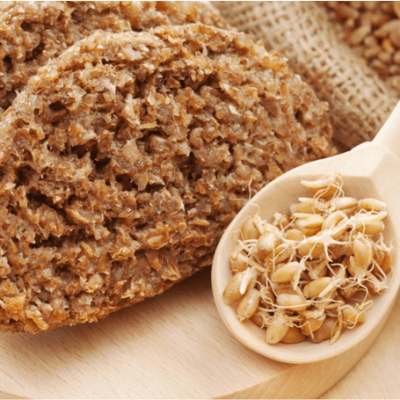
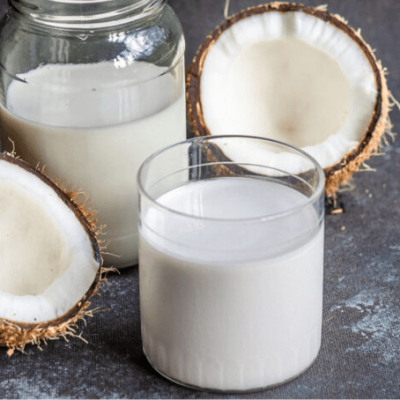
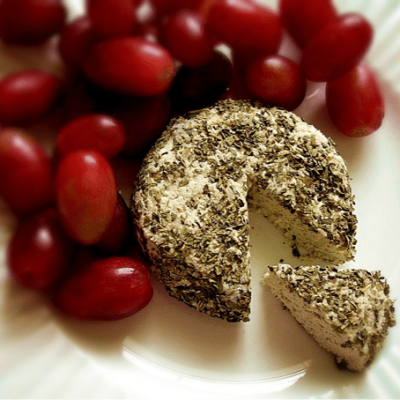
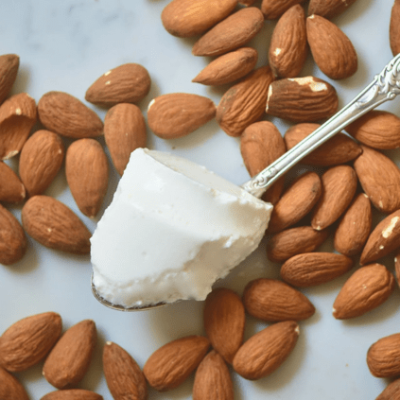
Within the diet and lifestyle of ‘Living Nutrition’, the full range of nuts replace dairy, including Coconuts, Macadamias, Almonds, Brazil nuts, Cashews, Hazelnuts and Walnuts.
Tree nuts are a nutrient dense living food rich in protein and fibre together with providing numerous essential vitamins, minerals as well as healthy mono and polyunsaturated fatty acids essential for regulating blood cholesterol and serve as a carrier for fat-soluble vitamins.
The beneficial phytochemicals present in tree nuts include polyphenols, carotenoids, phytosterols, phytates, and lignans. Studies show that these phytochemicals have antioxidant, anti-inflammatory, anti-mutagenic, and anti-cancer properties as well as contain a broad range of bioactivity of phytochemicals that aids in preventing and slowing down aging and age-related diseases.
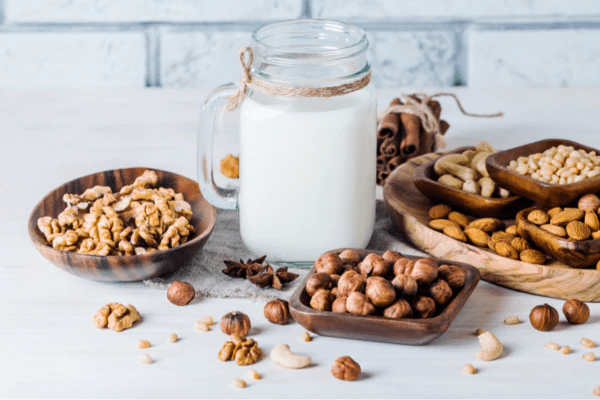
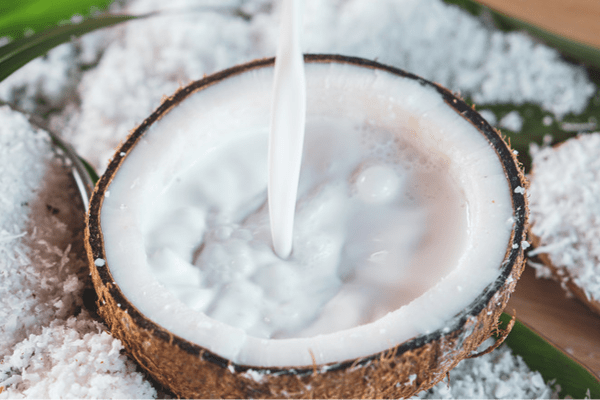
With no more than a blender and some cheesecloth, Nut Milks are incredibly quick and easy nutritious living foods able to be made ahead of time to add to smoothies or use as the base of other raw recipes.
By making nut milk instead of buying packaged nut milk, artificial additives and palm oil can be avoided, along with wasteful and often times toxic packaging as well as allow for the waste pulp to be composted to enrich fruit trees and vegetable gardens.
Nut milks are generally high in phosphorus, potassium, folate and magnesium, plus contains no cholesterol, lactose or hormones.
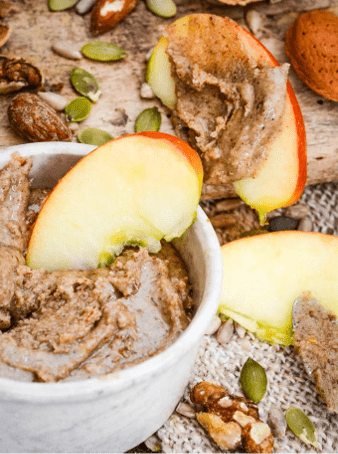
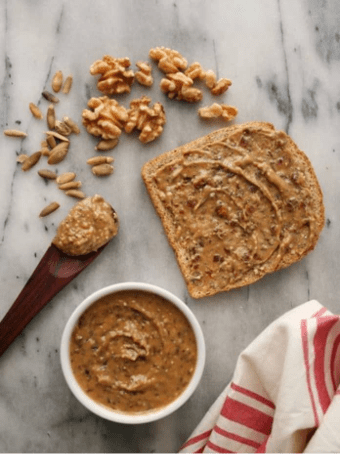
Nut Butters such as Almond Butter are made from raw organic almonds in a food processor and requires no added oil.
Raw Tree Nut Butters are good sources of monounsaturated fats – the good fats which actually lower cholesterol. Almonds along with Macadamia nut butters are one of the best natural sources of vitamin E, magnesium, which is thought to promote healthy blood pressure.
Studies have shown that people who regularly eat nuts & nut butters tend to avoid weight gain, despite the high calorie content in nuts. This may be due to the fact that nuts and nut butters are satiating and help balance blood sugar levels.
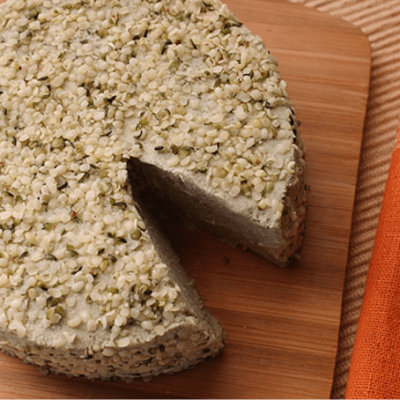
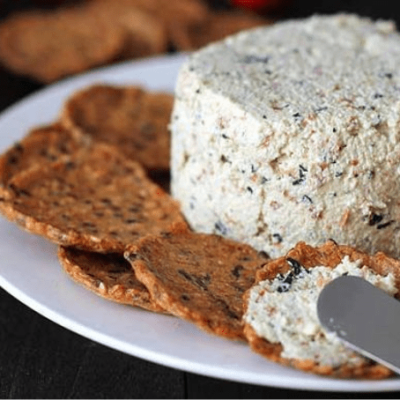
Everything from Cream Cheese, Feta, Mozzarella to Camembert can be recreated using tree nuts combined with herbs. Creating nut cheeses is an advanced culinary art, however with patience and practice it is a skill worth learning that promises rich rewards.
Nut cheeses replace dairy cheese – no cows need be enslaved – artificially inseminated or have their precious babies taken away to produce milk to make plant-based nut cheeses.
Raw Nut cheeses are delicious key ingredients in velvety sauces for various dishes, as a spread on sprouted breads & raw seed crackers, or made into a dip to dress salads & seaweed wraps.
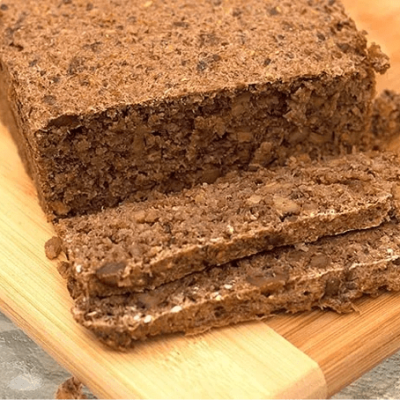
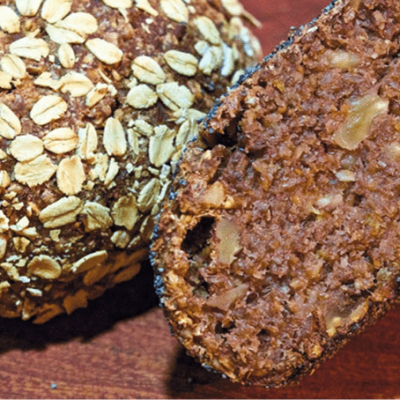
For communitarians transitioning to Living Nutrition in their first year of association, and for those living in cold climates where there are times when quality fruits and greens are in short supply, or else prohibitively expensive, sprouted breads are concessional additions to their diets.
The grains selected to produce the loaves and crackers are derived from organic sources. Sprouted Flour is made from sprouted wheat berries, spelt, amaranth, rye, corn, buckwheat and many more. The base of Sprouted Bread is grain that is allowed to sprout and begin to germinate. Traditionally the grains were sprouted in the fields, on the stalks before harvesting. However modern methods of producing bread, even so-called healthy breads, have lost this step. Still, it is easy for those producing living food within Living Kitchens to reinstall this step.
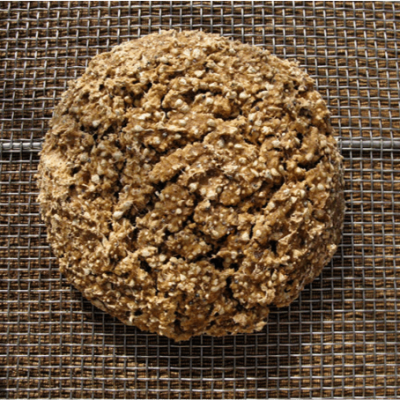
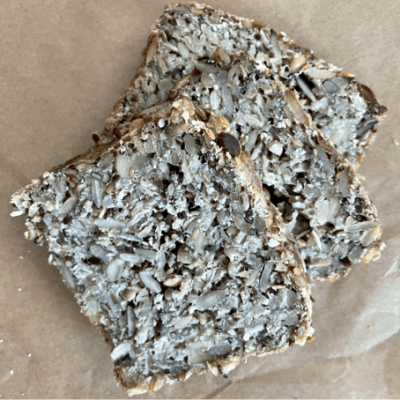
The use of sprouted grains in bread can be traced back to several ancient cultures across the globe, including the Essenes, a group who followed a diet of living foods from the second century BC to the first century The ‘Dead Sea’ Scrolls record the practice of sprouting wheat and other grains as well as seeds before grinding it into dough and baking it in the sun to make a ‘living bread’ that is greatly sustaining.
Sprouting is nature’s way of unlocking valuable nutrients making the essential compounds such as carbohydrates, fats, proteins, vitamins, minerals and water available to provide the body with energy and the building blocks for repair and growth, as well as, activating substances necessary to regulate a host of other vital chemical processes.
More importantly, soaking and sprouting also deactivates phytic acid, which is a compound that prevents minerals such as calcium and iron from being absorbed by the digestive tract. Sprouting grains also makes the vital nutrients easier to absorb while retaining all the natural nutrition and fibre benefits and functions.
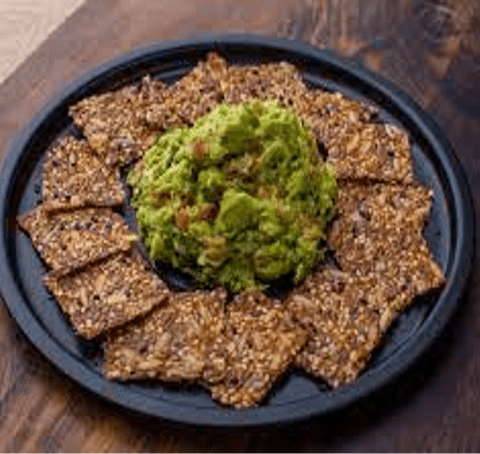
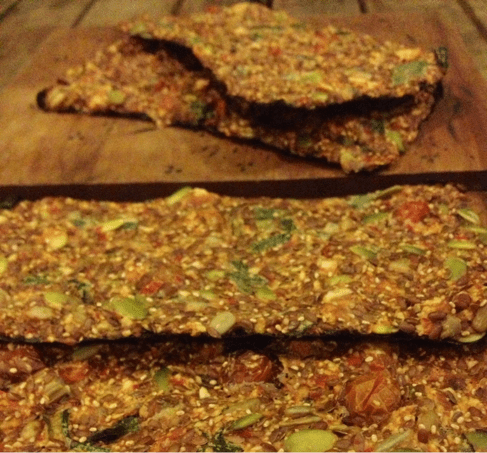
Chia seeds, flaxseeds, hemp seeds, pumpkin seeds, sesame seeds, and sunflower seeds are always sprouted to remove the outer coating that contains anti-nutrients that can irritate the gut lining before being eaten raw or used in recipes such as dehydrated seed crackers.
Seeds contain protein, mostly healthy fats and fibre. Flaxseeds and chia seeds are also good sources of plant-based omega-3 fatty acids which are important for making and regulating hormones. Seeds can help regulate blood sugar levels, cholesterol and blood pressure.
There are times when most of us crave something to eat that has major ‘crunch’. Seed crackers furnish the ‘goods’ providing a satisfying snack or addition to a main meal.
The first process involves sprouting the seeds by covering the seeds in a glass jar with filtered pure water. Once little ‘tails’ appear it is time to rinse the seeds and combine with herbs, a little sea salt or seaweeds such as nori, roll out into a baking sheet ready to be placed in the solar drier for 1 – 2 days depending on the weather.
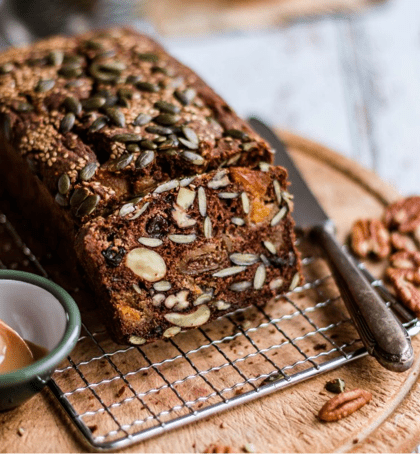
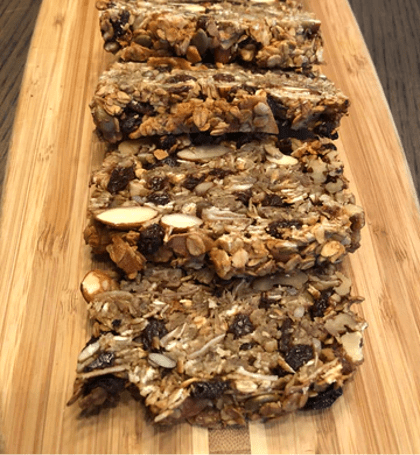
Both the morning and evening meals can consist of fresh fruit accompanied by sprouted bread, or else a mix of dried fruits embedded within the sprouted and sundried bread such as figs, raisins, dried apples, apricots and cherries.
Even grated raw pumpkin sun-baked into a sprouted grain and seed bread is deliciously satisfying, especially if a long day of physical or mental labour lies ahead.
Fruit breads transport well and hold up well as prepared meals to take on picnics or lunch on the go.
After sun-baking Loaves need to be stored in air-tight containers and stored in a cool, dark place.
Sprouted breads of all kinds are best eaten within 2-3 days. It is best to make fresh batches of the sprouted dough, daily, being mindful that the breads may have to remain in the solar food dryers or the electric dehydrators for more than 24 hours depending on the weather. For this reason, the quantity of bread required needs to be calculated well in advance.